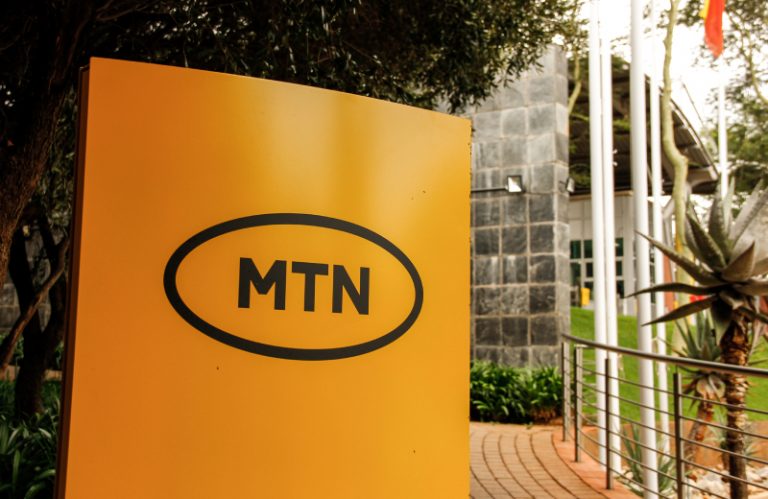
MTN Nigeria has reported a staggering N400.44 billion loss after tax for the year ended December 31, 2024, marking a 192% increase from the N137.02 billion loss recorded in 2023.
The telco attributed this loss primarily to the devaluation of the naira, which caused a sharp spike in foreign exchange (forex) losses, significantly impacting its financial position.
According to its audited financial statements released on Thursday, forex losses surged to N925 billion in 2024, up from N740 billion in the previous year. This emanated from the depreciation of the naira, which fell from N907/$ at the end of 2023 to N1,535/$ by December 2024, making it more expensive for MTN to service its foreign-denominated obligations, such as network expansion costs and equipment purchases.
Register for Tekedia Mini-MBA edition 17 (June 9 – Sept 6, 2025) today for early bird discounts. Do annual for access to Blucera.com.
Tekedia AI in Business Masterclass opens registrations.
Join Tekedia Capital Syndicate and co-invest in great global startups.
Register to become a better CEO or Director with Tekedia CEO & Director Program.
However, MTN Nigeria’s revenue grew by 36% to N3.36 trillion in 2024, up from N2.47 trillion in 2023, driven by continued demand for data and digital services. But the mounting forex losses overshadowed these gains, leaving the company in a negative retained earnings position of N607.5 billion as of December 2024.
Telecom Sector Bedeviled by Nigeria’s Harsh Economic Realities
For years, the telecommunications sector has been Nigeria’s economic cash cow, contributing significantly to the Gross Domestic Product (GDP) and serving as one of the most stable industries in the country. However, the sector has struggled under Nigeria’s harsh economic realities, facing challenges such as:
- Soaring operational costs due to the high cost of diesel to power base stations amid Nigeria’s unstable electricity supply.
- Forex volatility has significantly increased the cost of importing telecom equipment.
- Regulatory constraints, particularly restrictions on tariff hikes, limited the operators’ ability to adjust prices in line with inflation and currency depreciation.
These challenges have led to huge financial losses for telecom operators, with MTN Nigeria being the most affected due to its size, scale of operations, and foreign currency exposure.
Delayed Tariff Adjustment
The Nigerian Communications Commission (NCC), which regulates the telecom sector, had long resisted allowing operators to increase tariffs despite repeated appeals from telcos. Until recently, telecom operators struggled to recover their costs, as their revenues were not keeping pace with the soaring expenses driven by inflation, forex devaluation, and energy costs.
After years of lobbying, the NCC finally approved a 50% upward review in call, data, and SMS tariffs, granting operators some relief to offset their rising costs.
The tariff hike, which was officially implemented in early 2024, marks a major shift in the industry and is expected to significantly reduce losses for telecom companies.
According to industry analysts, this tariff review, coupled with internal cost-cutting measures and operational adjustments, should help MTN Nigeria and other telcos stabilize their financials and return to profitability.
MTN Nigeria’s CEO, Karl Toriola, expressed confidence in the company’s ability to bounce back, citing the resilience of its business model and recent regulatory approvals as key factors that will aid recovery.
“We are encouraged by the resilience of our business in FY 2024, which reflects our strong commitment to driving growth and managing costs. Despite facing significant macroeconomic headwinds, including record-high inflation, as well as ongoing currency and energy price volatility, we remained focused on executing our strategy and creating long-term value for our stakeholders,” he said.
Toriola also acknowledged the recent tariff adjustments as a positive step: “We are grateful to the authorities for the recent approval of tariff adjustments, which are essential for our industry’s sustainability and crucial for addressing our negative capital position,” he said.
While MTN Nigeria’s revenue growth indicates that demand for telecom services remains strong, industry analysts believe that the company’s future profitability will depend largely on the following issues:
- Impact of the New Tariff Structure – The approved 50% tariff hike is expected to boost revenues in the coming quarters, but its effectiveness in fully offsetting forex losses remains to be seen.
- Operational Efficiency – The company will need to cut costs and improve efficiency to maximize the impact of the new tariffs.
- Government Policies – The regulatory environment will continue to play a major role in the telco’s financial health, especially regarding future price adjustments and forex availability.



